5 Agritourism Destinations for Modern Farmers Once it’s Safe Again
Because we all could use a vacation right now.
5 Agritourism Destinations for Modern Farmers Once it’s Safe Again
Because we all could use a vacation right now.
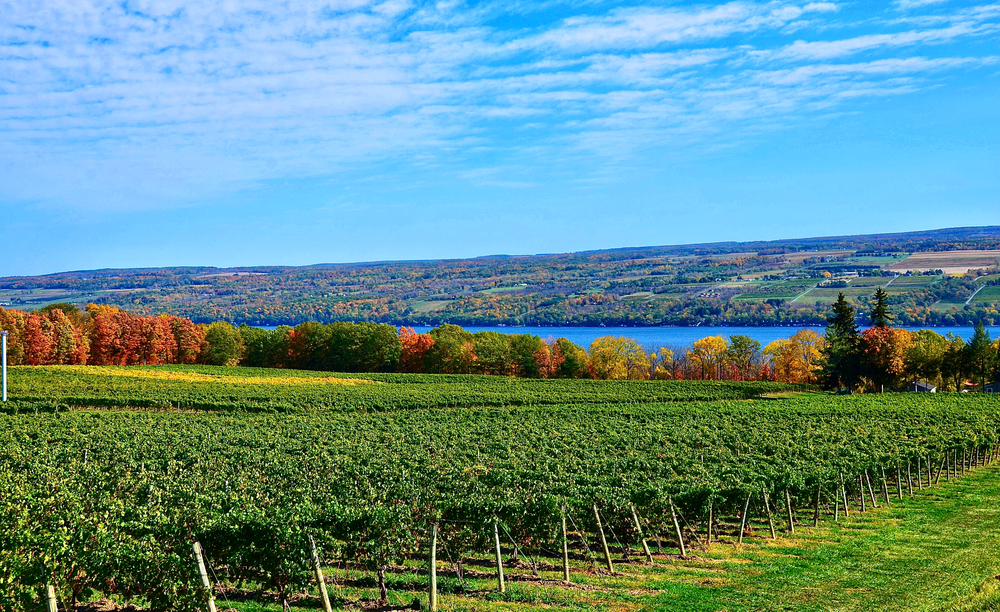
If wine is your thing, check out the Finger Lakes.by PQK/Shutterstock
Over the past 14 months, we’ve sat at home and watched the world come to a halt, dreaming of the next time we’d be able to safely hit the road or board an airplane. With vaccines now rolling out across the country and states slowly reopening, it’s time to think about traveling again.
These five regions are booming with agritourism opportunities—and they’re just as ready for visits from vacation-hungry travelers as you are to leave the house.
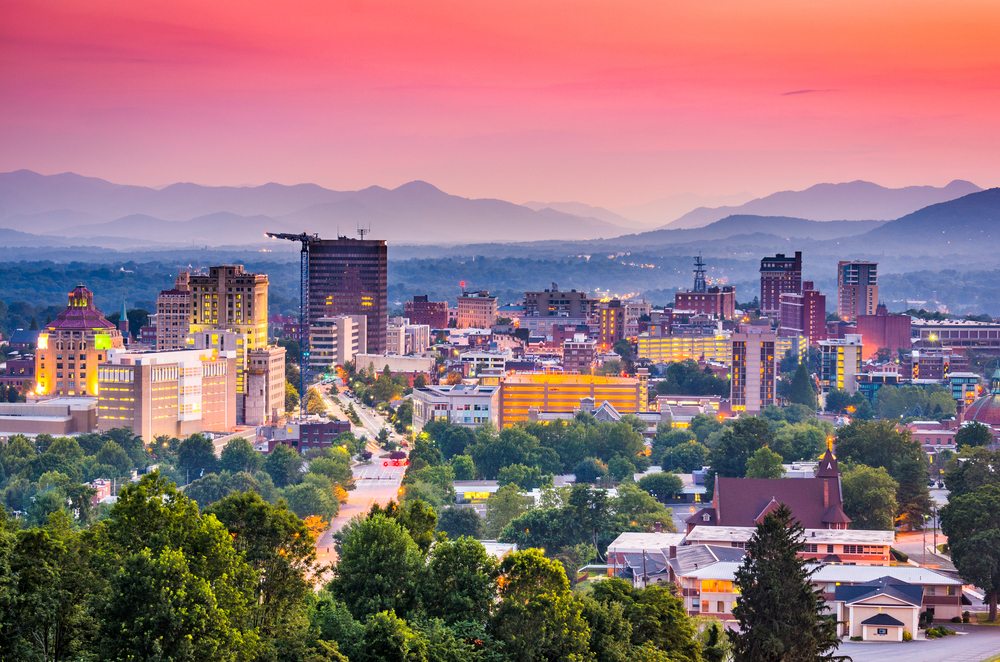
Nestled in the heart of the Blue Ridge Mountains, Asheville boasts more than 17 farmers markets that feature fresh produce and goods from surrounding farms. Sample local fare at restaurants and craft breweries in Asheville’s bustling downtown, many of which are committed to farm-to-table menus. Try your hand at beekeeping at Killer Bees Honey Farm, which offers tours—protective suit, veil and gloves included—and close inspections of their buzzing hives. Get off the beaten path and pick your own wild edibles on guided No Taste Like Home foraging tours. You can also hit the Western NC Cheese Trail, featuring four artisan cheese makers, including the goat cheese focused Round Mountain Creamery and Looking Glass Creamery, a small family dairy farm that follows a seasonal farming model to make blue, feta, gouda and Alpine-style cheeses. Ready to travel but still craving a bit of social distance? Stay in one of the cottages at the 40-acre East Fork Farm.
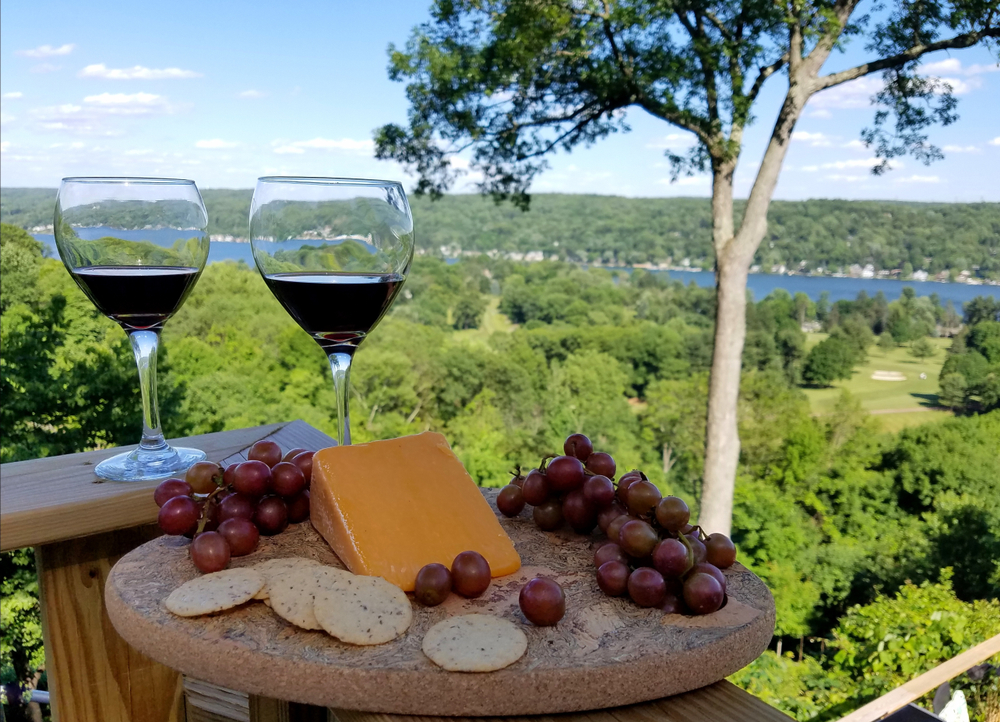
The Finger Lakes, New York
There’s a total of 11 lakes in the Finger Lakes region, but much of the region’s agritourism is located around Seneca Lake and Cayuga Lake, the longest and largest ones. With Geneva, Watkins Glen and Ithaca as the three points, this triangle-shaped area is home to dozens of winery tasting rooms—including Red Newt Cellars, Hermann J. Wiemer Vineyard and Bloomer Creek Vineyard—and their vineyards, plus orchards, breweries, farms and creameries. No trip is complete without a visit to the Finger Lakes Cider House or South Hill Cider, where you can sample tastes of the region’s burgeoning cider industry. Get moving at a goat yoga class at Lively Run Goat Dairy or on a lengthy hike. Ithaca, of course, is known for its gorges, but there are plunging waterfalls and national forests to be explored as well.
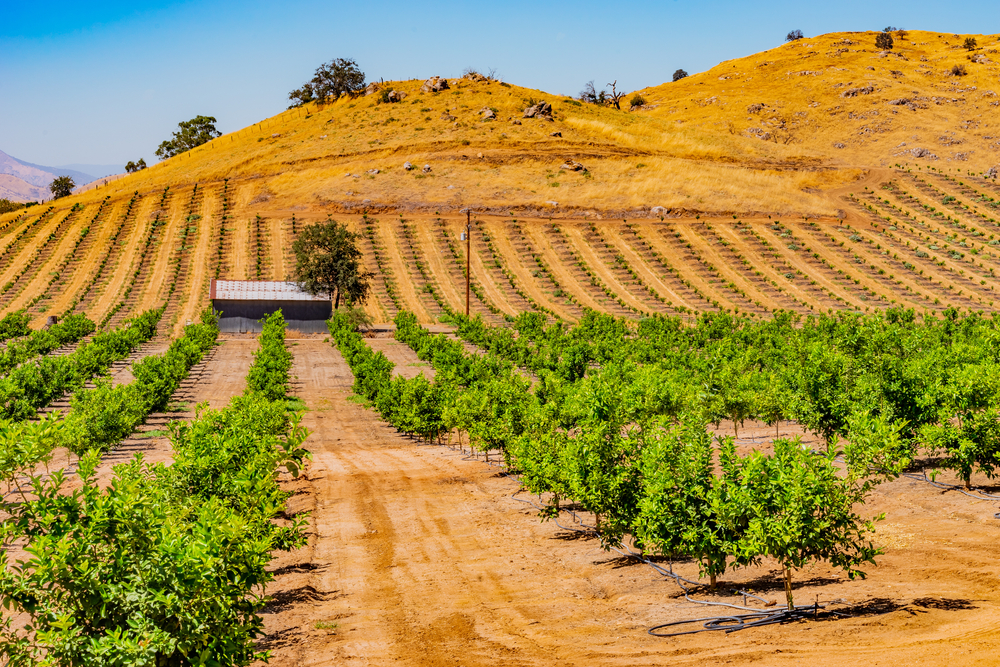
Fresno County, California
Home to 1.88 million acres of farmland, Fresno County has miles and miles of fruit orchards. In early spring, the 62-mile Blossom Trail is lined with fruit and nut trees in full bloom. Later, the same route morphs into the Fresno County Fruit Trail. The self-guided tour includes destinations along the way where you can purchase plums, peaches, apples, nectarines, apricots, persimmons, almonds and pistachios. Make one of your stops Simonian Farms, a family-run fruit stand run for four generations. The red barn encloses a model Western town, as well as vintage tractors, restored gasoline pumps and antique balloon-tire bikes. In Fresno, the county’s bounty of produce is on full display in the 6,000-square-foot Vineyard Farmers Market, open Wednesdays and Saturdays.
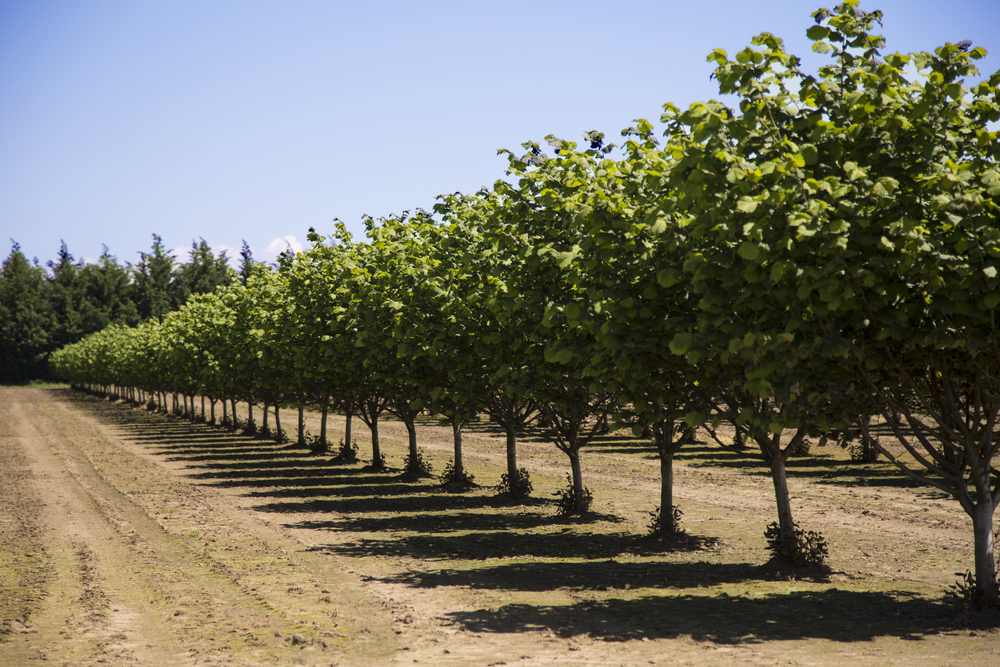
Willamette Valley, Oregon
It may be widely known as a wine region, but the Willamette Valley grows more than just grapes. Hazelnuts are just as important of a crop—99 percent of all hazelnuts grown in the US are grown here—so you’ll see filbert trees all over the fertile valley. Hit the Great Oaks Food Trail, a self-guided tour that features family farms, ranches and orchards, the Baskett Slough National Wildlife Refuge and eateries that source ingredients locally, such as Bountiful Pies. What you really need most on a vacation in the Willamette Valley is a trip to one of Oregon’s many hot springs. The secluded Terwilliger Hot Springs, also called Cougar Hot Springs, has six soaking pools in the Willamette National Forest that require a half-mile hike to get to. For a more luxurious soak, Breitenbush Hot Springs offers an overnight wellness retreat that includes organic, vegetarian meals.
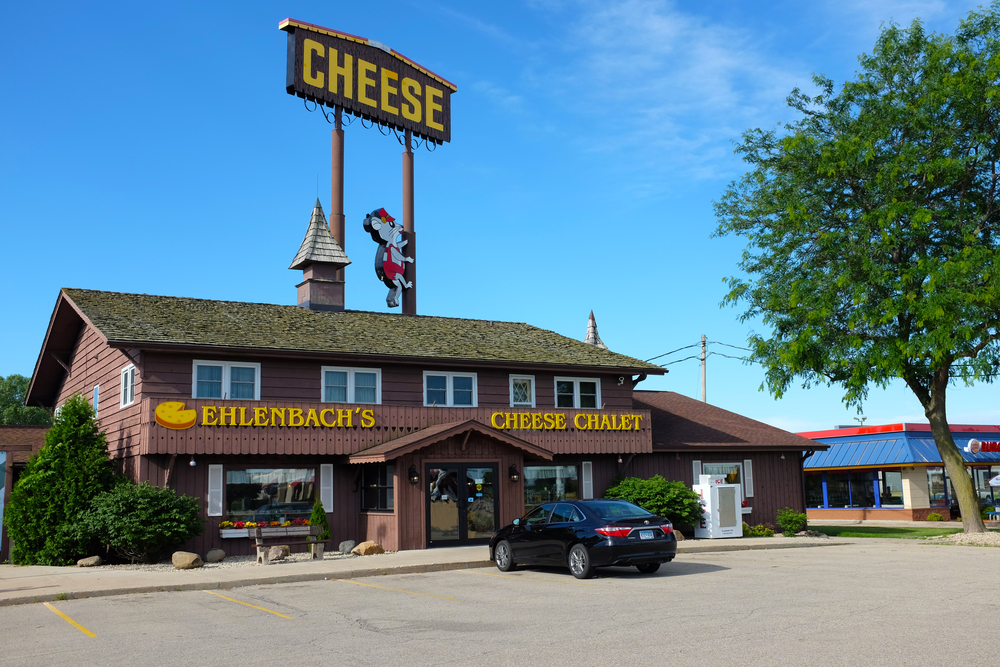
No discussion of Wisconsin is complete without mentioning cheese. The Dairy State is home to more than 1,200 cheesemakers who make more than 600 different kinds of cheese. Ellsworth Dairy Cooperative is known for its fresh, warm cheese curds, sold daily, for which people line up. Take a tour at Marieke Gouda, a woman-owned dairy, where you’ll see all aspects of the process that go into making the farmstead cheese. Get a true farm-to-table experience at a Suncrest Gardens’ pizza farm, where they churn out pies topped with ingredients grown on or around the farm. Beyond cheese, Wisconsin is home to a diverse farming community, including those run by the Amish and Native American tribes, with additional agritourism opportunities around cranberry bogs, maple sugaring and—increasingly—cideries such as Maiden Rock and Island Orchard.
Follow us
This work is licensed under a Creative Commons Attribution-NoDerivatives 4.0 International License.
Want to republish a Modern Farmer story?
We are happy for Modern Farmer stories to be shared, and encourage you to republish our articles for your audience. When doing so, we ask that you follow these guidelines:
Please credit us and our writers
For the author byline, please use “Author Name, Modern Farmer.” At the top of our stories, if on the web, please include this text and link: “This story was originally published by Modern Farmer.”
Please make sure to include a link back to either our home page or the article URL.
At the bottom of the story, please include the following text:
“Modern Farmer is a nonprofit initiative dedicated to raising awareness and catalyzing action at the intersection of food, agriculture, and society. Read more at <link>Modern Farmer</link>.”
Use our widget
We’d like to be able to track our stories, so we ask that if you republish our content, you do so using our widget (located on the left hand side of the article). The HTML code has a built-in tracker that tells us the data and domain where the story was published, as well as view counts.
Check the image requirements
It’s your responsibility to confirm you're licensed to republish images in our articles. Some images, such as those from commercial providers, don't allow their images to be republished without permission or payment. Copyright terms are generally listed in the image caption and attribution. You are welcome to omit our images or substitute with your own. Charts and interactive graphics follow the same rules.
Don’t change too much. Or, ask us first.
Articles must be republished in their entirety. It’s okay to change references to time (“today” to “yesterday”) or location (“Iowa City, IA” to “here”). But please keep everything else the same.
If you feel strongly that a more material edit needs to be made, get in touch with us at [email protected]. We’re happy to discuss it with the original author, but we must have prior approval for changes before publication.
Special cases
Extracts. You may run the first few lines or paragraphs of the article and then say: “Read the full article at Modern Farmer” with a link back to the original article.
Quotes. You may quote authors provided you include a link back to the article URL.
Translations. These require writer approval. To inquire about translation of a Modern Farmer article, contact us at [email protected]
Signed consent / copyright release forms. These are not required, provided you are following these guidelines.
Print. Articles can be republished in print under these same rules, with the exception that you do not need to include the links.
Tag us
When sharing the story on social media, please tag us using the following: - Twitter (@ModFarm) - Facebook (@ModernFarmerMedia) - Instagram (@modfarm)
Use our content respectfully
Modern Farmer is a nonprofit and as such we share our content for free and in good faith in order to reach new audiences. Respectfully,
No selling ads against our stories. It’s okay to put our stories on pages with ads.
Don’t republish our material wholesale, or automatically; you need to select stories to be republished individually.
You have no rights to sell, license, syndicate, or otherwise represent yourself as the authorized owner of our material to any third parties. This means that you cannot actively publish or submit our work for syndication to third party platforms or apps like Apple News or Google News. We understand that publishers cannot fully control when certain third parties automatically summarize or crawl content from publishers’ own sites.
Keep in touch
We want to hear from you if you love Modern Farmer content, have a collaboration idea, or anything else to share. As a nonprofit outlet, we work in service of our community and are always open to comments, feedback, and ideas. Contact us at [email protected].by Shelby Vittek, Modern Farmer
May 2, 2021
Modern Farmer Weekly
Solutions Hub
Innovations, ideas and inspiration. Actionable solutions for a resilient food system.
ExploreExplore other topics
Share With Us
We want to hear from Modern Farmer readers who have thoughtful commentary, actionable solutions, or helpful ideas to share.
SubmitNecessary cookies are absolutely essential for the website to function properly. This category only includes cookies that ensures basic functionalities and security features of the website. These cookies do not store any personal information.
Any cookies that may not be particularly necessary for the website to function and are used specifically to collect user personal data via analytics, ads, other embedded contents are termed as non-necessary cookies.
The cornucopia of Fresno County ($10 Billion in 2019) is a segment of the agricultural wealth of the San Joaquin Valley. The volume of products going to market in and out of the US are mind boggling. This article touches upon but a few products. If severe drought conditions continue in this area, quantity, quality, variety and cost$ to the American diet will be impacted.